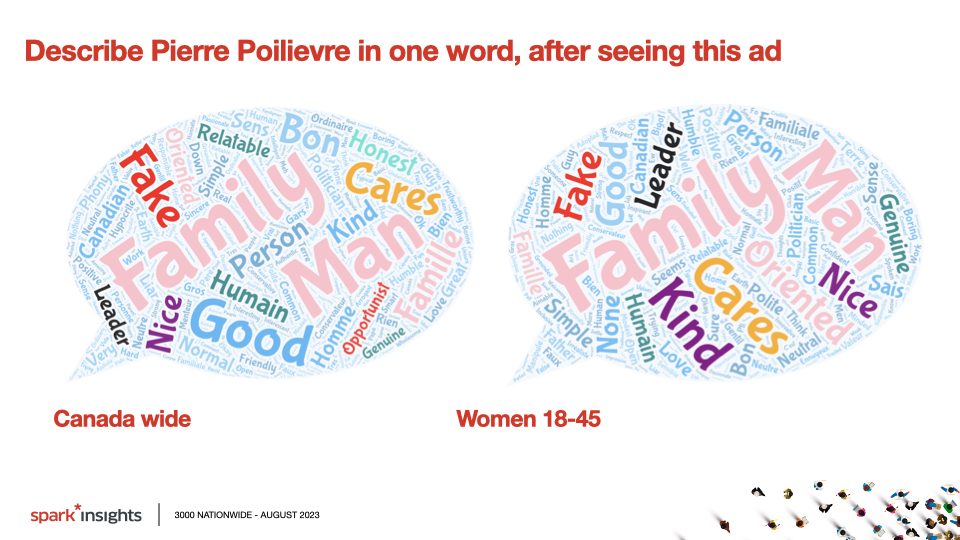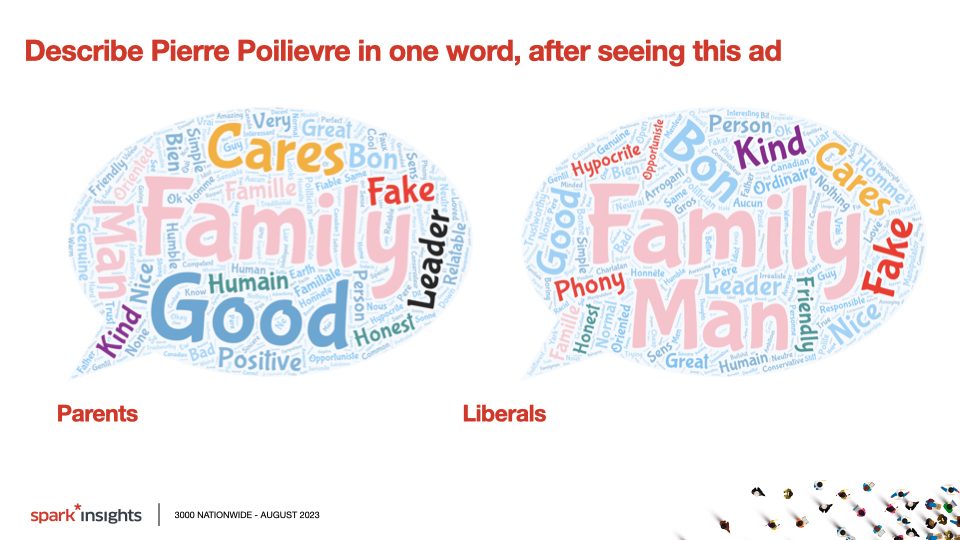Subscribe for more!
Subscribe to our newsletter for insights and articles on wide ranging issues including reputation management, branding, advertising, awareness, advocacy, and communications. You can unsubscribe anytime.
Follow us on social:

She conveyed a softer, family-oriented side to the CPC leader.
Political advertising in Canada has some unique aspects, especially compared to advertising in the democracy to our immediate south. Each of Canada’s major national parties can only spend about $30 million during a writ period.
In contrast, US political advertising was expected to be almost $10 billion (US) in 2022 alone. And while traditional broadcast channels may be losing reach as cords are cut and new households form without cable or satellite subscriptions, TV style advertising is thriving, based in part on the rise of connected or smart TVs, which has allowed for enhanced targeting and greater efficacy. Ads targeted to the person’s interests are better received, and more likely to generate the intended response.
In Canada, the Conservative Party has for a good number of years, enjoyed greater fundraising success than its rivals, and has had the ability to spend more money in the non-writ period, where parties are not bound by spending caps. The Conservatives bought targeted spots this summer to support a key pre-campaign goal: to soften the impression of Pierre Poilievre among those who might see him as unidimensional and cold or harsh. Spending money this way is often important for political parties, given the smaller caps on advertising during the shorter formal election period.
One of the prominent ads the Conservatives employed was narrated by his wife, Anaida, during which she talked about him as a father, and a husband. Using a bespoke research approach, spark*insights assessed this ad with a sample of 3000 Canadians across the country and asked their reaction.
A majority (56%) said this ad left them with a good impression of Pierre Poilievre, only 13% said it had the opposite effect. While on the top line these results are pretty solid for a piece of political advertising, in a time where things are so polarized, a deeper look at subgroup opinion makes it even clearer that this ad was useful for the Conservatives.


We asked respondents to describe Pierre Poilievre in one word after seeing the video, and the family visuals in the advertisement clearly left an impression. The word “Family” was the single most common takeaway, far more than any other word. Others described feeling Mr. Poilievre was caring, honest, genuine and a leader. These reactions seemed largely consistent across key demographics – especially notable among younger women and among Liberal voters as well.


Bruce Anderson: “A good amount of research into political advertising shows that emotion-based ads are often more effective than policy-based advertisements. It’s also generally the case that candidates who are leading can and do afford to engage with positive emotions, while those trailing are more drawn to the use of negative emotions.
This advertisement is highly emotion based, and its arrival in the marketplace coincides with evidence that the Conservatives and Pierre Poilievre are leading in the polls. For the Liberals, the disquieting evidence in this data is clear: they cannot expect progressive or centrist, urban or female voters to turn against Mr. Poilievre, simply because he is a Conservative. They should expect, in contrast, that Mr. Poilievre will continue to use ads like this to shape public impressions of what he is made of and stands for, and that this advertising will sway voters towards considering the Conservatives."
Perry Tsergas, spark*advocacy's CEO + President: “The Conservatives have not been shy about spending their money to buy advertising outside of an election. They clearly see the value in parting with cash now, to make their job easier later. Spending money to familiarize voters with Pierre – especially those who are low-or-no-news consumers – is smart. No other political party has spent their money to frame Mr. Poilievre. The Conservatives are skating on the ice all on their own at the moment.”
Survey details: August 18-28, online, 3000 cases nationwide in Canada.
spark*insights is led by Bruce Anderson, one of Canada’s leading and most experienced public opinion researchers. From polling and research to analysis and guidance, we help organizations, uncover the factors driving or influencing public perception to gain valuable insights into the shape and movement of the landscape.